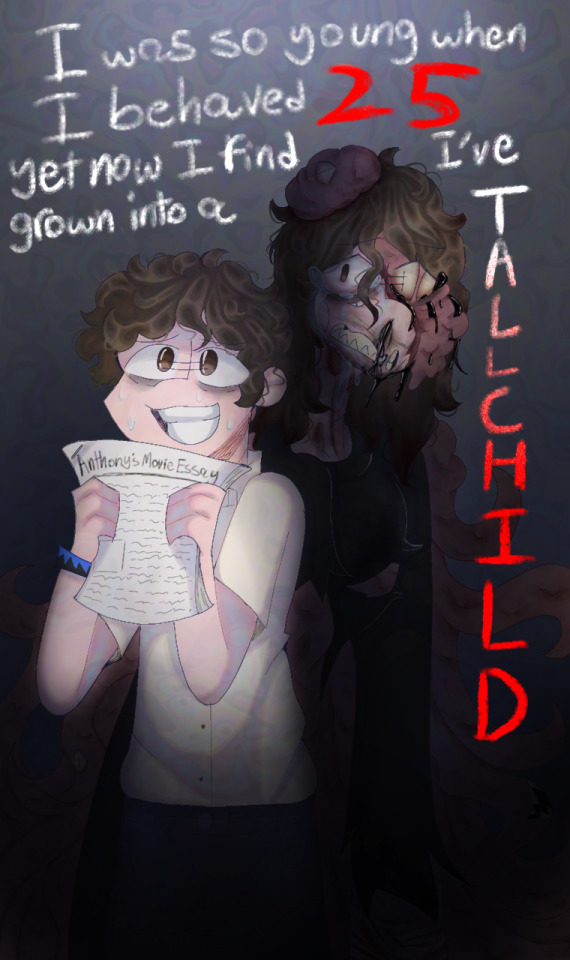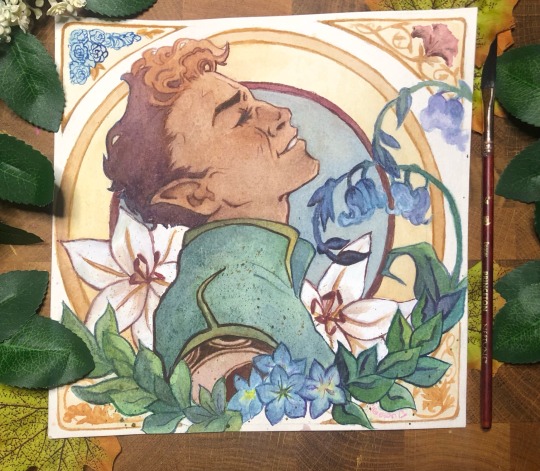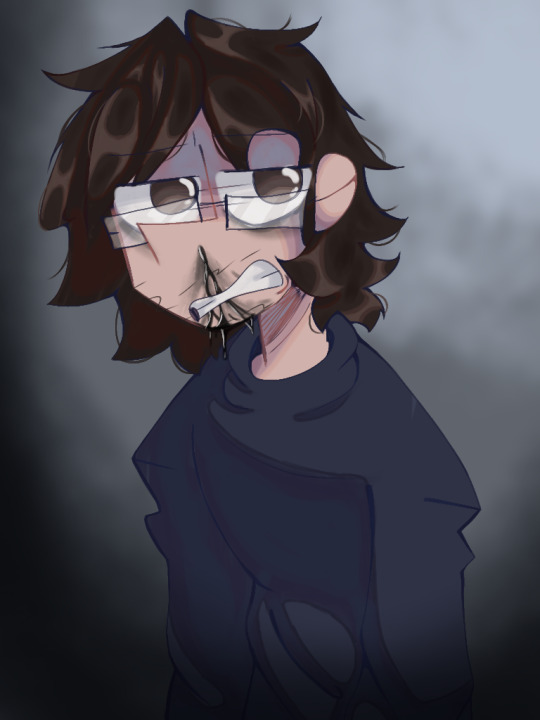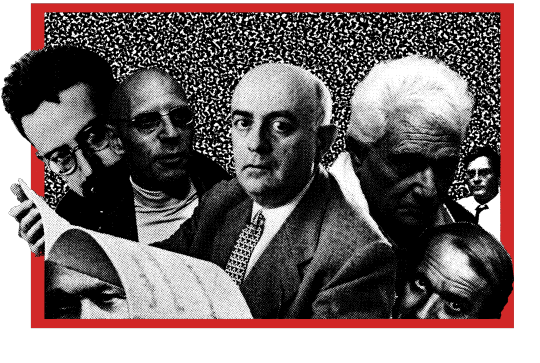#tumblr theory and criticism
Text

Another merciless Percy post. This was pretty much just practicing coloring digitally. I really struggle with making colors work >.< any tips would be encouraged! I followed Kuroshiro's coloring tutorial on yt but it was for CSP and I use PS so some of the stuff doesn't translate.
#critical role fanart#critical role#criticalrolecampaign1#cr1#percival de rolo#percy de rolo#no mercy percy#percy derolo#d&d art#digital art#artwork#art#painting#practice#drawing#color theory#artists on tumblr#digital aritst#vox machina season 2#vox machina#the legend of vox machina
372 notes
·
View notes
Text

Bro has been struggeling with the concepts of maturity and immaturity since he was a wee lad
#tw body horror#cw body horror#tw blood#cw blood#muse arg#don't feed the muse#happy meat farms#alex bale#spongebob theory arg#dftm#anthony williams#the cynical critic#the cynical critics#cynical critic#muse arg au#dftm au#Dltfu#Don't let them find us#digital art#digital artist#artists on tumblr#Mitski strikes again#live laugh love mitski#bro really went downhill after his boyfriend- erm I mean best friend pushed him off the stairs 💀#Anthony was one of those children who were told that they were so mature for his age but was also told that he was too immature for his age#and it was crazy how both was kinda true#Also there was a stage in his life where he was tired of being called immature so he tried to be “ an adult” just to please his mother#also you know that moment in that one cynical critic video about cartoons were Mark didn't want to say his lines and that made Antonio mad#Yeah headcannon those lines where refrencing Anthony and what people told him as a child thats why Mark didn't want to say those lines#lol sorry for headcannon dumping😅
33 notes
·
View notes
Text

Cast your predictions here and feel free to elaborate in the notes. Reblog for larger sample size!
#these are all the main routes I could think of#hopefully I didn't miss anything major#hazbin hotel#vivziepop#hellaverse#hazbin#hazbin alastor#alastor#hazbin critical#hazbin hotel critical#hazbin hotel theory#polls#tumblr polls
21 notes
·
View notes
Text

from the shelf 003/???: from anne carson's eros the bittersweet
#catullus#anne carson#eros the bittersweet#on love#love poems#spilled ink#literary analysis#literary criticism#literary theory#classic literature#literature#quotes#prose#poems and poetry#poetry#poets on tumblr#from the shelf
20 notes
·
View notes
Text

“Glad you’re not here….wish you were anyways.”
Orym stop breaking my heart challenge 🥲
#my art#artist of tumblr#tumblr artist#art#fanart#critical role fanart#cr fanart#critical role#watercolor artist#watercolorpainting#watercolor#campaign 3#bells hells#orym of the air ashari#cr orym#added a background cause I woke up one day hating the blank version I posted a while ago#and tbh I’m in love with this version#don’t ask me about flower theory idk what I’m doing#also thanks y’all so much for your support#I see it all and it means so much to me
206 notes
·
View notes
Text
Y'know, Ollie not being Fearne's real father just seems too straight forward and like, not new for Fearne's story, to me. She's already grappling with the fact that Morri is not her grandmother by blood - that ground's tread already.
I think it would be interesting if either Birdie had to call in some kind of favor received through a previous dalliance with some dark entity in order to ensure Fearne's conception or birth, or if Birdie wasn't always a faun and was originally of devilish ancestry. Like maybe she was so taken by the fey chaos antithetical the devils that she made a deal (maybe with Morri?) to become Fey, and Fearne, who of course favors her mother so much in looks, could gain the ability to take on an infernal shape not unlike wildshaping. Idk.
#cr theories#critical role#fearne calloway#I realized again I never really post my theories anywhere but discord so fuck it#i'm gonna start trying to post em on tumblr so I can find the damn things when I want to#birdie calloway
38 notes
·
View notes
Text
The grammatical metaphor of music is popular in compositional instruction, and it likely has some utility, however, I believe that it is more limiting then helpful.
choral music can be a good example of this, so here is an excerpt from carol of the bells (with the original Ukrainian lyrics)

the contrast between the melodic movement and the lyric movement should be obvious.
this entire piece is constructed around that single bar repeated lic, which repeats, exactly the same, for 42 of 54 bars. in those remaining 12 bars the lic is passed to a less prominent register, but It's still there.
(Note also; this lic doesn't resolve, in the grammatical metaphor it isn't a full sentence, it's a fragment.)
it would be nonsensical to write a poem with a structure this repetitive, and we can see that in the lyrics, which contain much less repetition.
However, it is this repetition that makes the piece work, it ties sections together and gives the music a clear and catchy structure.
Fundamentally, speech is a symbolic medium, but melody is abstract. So I, personally, have never seen why there should be any conceptual overlap between the two.
#music theory#music#musicians on tumblr#carol of the bells#choir#classical music#composition#music criticism
16 notes
·
View notes
Text
reblog for a wider range cuz im genuinely curious and kinda wanna get dragged a little lol
#some of these are worse then others i know#and these aren't even all of them but the ones ive notice/been tolf are the most frequent#game theory#fnaf#bmc#superwholock#tmnt 2003#yuri on ice#soul eater#ouran high school host club#tumblr polls#poll#polls#nostalgia critic
48 notes
·
View notes
Text
i think it's really funny when people are like "i can't take this show seriously i think it's so funny that this show has a fandom. it's like if people started shipping simpsons characters or wrote video essays about bart" or otherwise use the simpsons as an example of a show that Obviously People Don't Take Seriously. like what are you talking about. go on nohomers for three seconds to realize how insane people are about the simpsons
#i've said this before but i think that tumblr-esque fan communities have a very specific view of shows that it's Okay To Take Seriously#and yes that does even include cartoons! but only CERTAIN cartoons#like certain shows are cool to like in passing or to make like art or analysis About The Property that Criticizes The Property#or to engage with if you're essentially treating the show like a meme or treating it with a sort of non-analytical nostalgia#but then people will act shocked when someone writes like. idk a genuine friends fanfic or something#so it leads to people who make in-depth owl house theories (for example) making fun of the idea that like#anyone could put that same amount of effort into a bob's burgers headcanon. for instance#idk i just think it's interesting#'what if people took seinfeld seriously!!!' look i'm not into seinfeld personally#but i can promise you that fan community exists and has discourse the likes of which you have never seen
19 notes
·
View notes
Text
Stories Are All We Are
I've loosely paraphrased a line from Cristina Bacchilega's 2015 paper Narrative Cultures, Situated Story Webs, and the Politics of Relation in the title - because it's something I think about a lot. Hell, I think about that paper regularly when I'm working - especially in the long hours were the words come like a slow drip from a leaky roof and I'm under it with a sauce pan just waiting, waiting for that soft plink.
But there's another, more poignant line (paragraph, really), and I want to unpack this with you if I may:
"Stories construct our worlds and us at the same time, emerging from actual negotiations with and in these worlds. Stories create and weave together the social networks that define us whether we belong to them or we other them. Stories shape our conceptions of these worlds, and they have material impact on these worlds, the human ones and the other living ones (natural and spiritual) we are a part of."
Daniel Quinn's novel Ishmael talks about stories as interrelations: narratives (and acts) that state how we connect to each other and the world around us. By extension, a culture is a group of people who have agreed on a story to make into a reality. He used this framing as a way to explain why western-society seems so hell-bent on its own ecological destruction: it is pursuing a story where the normal rules of resource use, population growth, and just generally sharing the planet and taking your turn, don't apply. It's a story where humans have ascended to knowledge held only by the gods.
That Bacchilega quote says it better than I can - a story is both an expression of our understanding, as well as a tool or even a force that impacts, expands, or even limits that understanding. When we talk about history as a narrative - we mean exactly this. Each volume of history, each new perspective is an expression or interpretation of past events - both presenting contemporary attitudes to the actions or attitudes of past generations, and also a shaping of cultural knowledge that may influence or affect future generations.
David Stannard (1992) made effective use of Leonard Thompson's conception of 'political mythology' in his analysis of European colonial violence in the Americas. Putting it as simply as I can, a political mythology is a narrative that tries to create a historical, or even sometimes 'scientific', basis for a ruling ideology or class.
Think Social Darwinism, or those people that bleat on about 'Alpha Males'. It's the pursuit of rationalisation or exoneration. Previously settled (or mostly settled, inasmuch as any of these things can be) historical discussions around the evils of imperialism, colonialism, racism, and any stripe or shade or form of bigotry can be reopened if it suits someone's platform or goals.
It can also be much, much smaller.
Each of us have our own stories - and isn't that just a worthless, pithy statement at times? But it is true. We are each creating and living out our own stories - billions of narrative threads and character arcs jostling for space alongside each other. The threads weave in and out, casting little fields of affect on each other, only to disappear over the horizon as they pursue their own terminus. The way we tell those stories to ourselves and to others affects us, deeply. If we behave badly, or mistreat others, we are tempted to explain away our behaviour. The narrative shifts and warps in order to keep us at its centre, as the hero of the narrative.
So it pays to think while you're writing.
What is the story I'm telling and how does it connect to others? Am I working to explain or exonerate, or to criticise or condemn? Who does this help? Who does this serve?
That's not to say it should be a conscious part of the drafting process, exactly. I know and have heard of many writers scuttling themselves in the pursuit of an ideologically pure novel - finding that such pursuits tend to seize, rather than grease, the wheels of storytelling.
No - save it for the edits. That time when you've set your work aside for a little while and come back to it, hoping you've gained sufficient distance and objectivity to amend and improve your work. Read it, involve yourself in it at both narrative and craft levels - and question yourself.
As I said before: stories express and they influence.
What are you expressing?
What are you hoping to change?
Further Reading (if you like)
Bacchilega, Cristina, ‘Narrative Cultures, Situated Story Webs, and the Politics of Relation’ in Narrative Culture, Vol. 2, No. 1, Spring 2015
Stannard, R., 1992, American Holocaust: The Conquest of the New World, Oxford: Oxford University Press
Quinn, D, 1995, Ishmael, New York: Bantam Books
#writing#writeblr#writer stuff#writers on tumblr#writerscommunity#fiction writing#essay#discussion#literary theory#literary criticism#writing thoughts#This is honestly just off the cuff stuff guys#Pay no attention to me#Seriously though read Bacchilega's paper - it's amazing
11 notes
·
View notes
Text
Trying a new shading style with a drawing of our favorite depressed man

#muse arg#don't feed the muse#happy meat farms#spongebob theory arg#alex bale#dftm#mark mayhew#the cynical critic#the cynical critics#cynical critic#fan art#art#digital art#digital artist#tumblr art#art on tumblr#Marks always so fun to draw
32 notes
·
View notes
Note
I really hope macaque's death was by his own hand.
Like a Disney villain
What you mean with that, well, love when the villain's actions end up causing his own destruction, I love that so much, it's so charming and poetic.
So here's a theory
Macaco's shadow powers are not original to him, he was not born with those powers, just like sun wukong, macaco learned from them somewhere maybe a demon taught macaco about them, but told him that those powers come with a curse. From time to time diyu chains would come to look for it, But it would only be once and can escape the chains if it is veils or struggle hard enough
So the chains appear to take him to the diyu at the worst possible time.
After losing his battle against sun wukong (which started because monkey attacked the tripitaka monk) monkey cannot move because he is exhausted and cannot teleport because he has no strength,
He tries to escape and ask sun wukong for help, but he had already left, Not knowing that macaque was sent to the diyu.
Ooooo you know @maidenofthecloud @ar-blackshaw came up with this really neat theory awhile ago that LEMH had made a deal with the Red Python Demon to get his shadow powers, as if memory serves correctly that snake was a pretty vicious yaoguai that had powers over darkness and reasons for a massive grudge against SWK (and could have potentially helped explain/helped create LEMH's henchmonkeys Rumble and Savage from the lego sets if Flying Bark had included them in the cartoon, as those two monkey yao do have some pretty snake-like fangs in addition to their red and black coloring).
Also I have to say I quite like proposal for what happens to the shadow simian here, as it does fit quite well with the Six-Eared Macaque of the og classic likely being partially an embodiment of the Buddhist saying (and I'm likely getting this somewhat wrong) that teachings should not be transmitted to the third ear; that is, teachings can only be best understood if transmitted from shifu to tudi, and someone else listening in on that private conversation or getting it secondhand won't truly understand what's being said. So since one proposal for how LEMH was able to copy SWK so perfectly was due to his ears letting him listen in on everything the Monkey King was saying and doing, including his lessons on gaining immortality from Puti Zushi, but in his actions was very much little more than a twisted version of SWK, that could very much explain how he was able to cultivate an imperfect form of immortality where instead of just having to avoid the three calamities and be immortal forever after he has to frequently avoid chains from diyu. This proposal could also make SWK at least a little bit less of an entire a-hole than the lego show as it currently stands would seem to suggest, as it's become downright baffling and pretty frustrating the level to which LEMH fully believes SWK killed him for purely selfish reasons & has spent like 3/4th of his screentime yelling about how horrible the monkey king is (but suddenly changed his mind about that & decided that his monkey king induced death wasn't worth mentioning even when asked directly lol) and yet for the entire show SWK has acted like nothing that bad happened lmao.
Also tbh it could make for a pretty neat story for LEMH if he gained an ally or even a genuine friend in the Red Python Demon but then left the snake to go confront SWK on the journey & then abandoned the serpent completely once he died & became violently obsessed with getting revenge on the monkey king in a parallel to what SWK seems to have done to him, & then got a chance to acknowledge that and start making a life for himself outside of the monkey king's orbit. Said it before, but I do think it sucks that there's still like nothing defining LEMH's life outside of his obsession with SWK, & I genuinely think it would do both him & SWK's characters a world of good if they were given opportunities to grow outside of each other's influence instead of the plot now routinely forcing them to interact.
#ask answered#monkey critical#haha man I've seen a number of really neat theories that do make me wish some creatives here on tumblr dot com#were the ones writing for monkie kid
19 notes
·
View notes
Text

Critical Theory Collage
#theodor adorno#walter benjamin#jacques derrida#michel foucault#gilles deleuze#felix guattari#critical theory#postcolonialism#deconstruction#zeroeroroo#artists on tumblr#art#oc art#my art#original art#oc
33 notes
·
View notes
Text
Naturalmente Mío (Afro-Latino)

Tienes que amar mi cabello. Es un mundo de rizos.
Todas las diferentes formas, tamaños y texturas con
solo una pizca de sal y pimienta. mi cuero cabelludo es
Con sabor a Nueva York: sigue mi viaje: Mis hebras
podría formar un círculo alrededor - Ludlow Street para Christopher Street un sábado por la noche pero
Estas raíces serán todas de Harlem. Mis consejos se doblan hasta el centro de Brooklyn, a través de la 2 o
el tren 3 durante los húmedos meses de verano
mi patrón de rizos se vuelve más apretado que un
acera en Times Square, el otoño
Los vientos de octubre tienden a dejarme el pelo.
Más salvaje que una pelea con cuchillos.
como el concreto
Los ladrillos del invierno forman mi cabello
un acabado de laca impecable
pero solo después de co-lavar y luego enjuagar
Y luego relajo mi cabeza contra mi almohada de satén.
caso... durante esas frías noches de invierno dejando
extremos duros y quebradizos que arrojar su camino hacia un nuevo amanecer…
#poetry month#afro latina#hispanics#latinx#black theme#black tumblr#black history#black literature#puerto rican#hispanic#black entrepreneurship#critical race theory#black fashion#weekend#brazilian
2 notes
·
View notes
Text

Critical Rice Krispies Theory
11 notes
·
View notes
